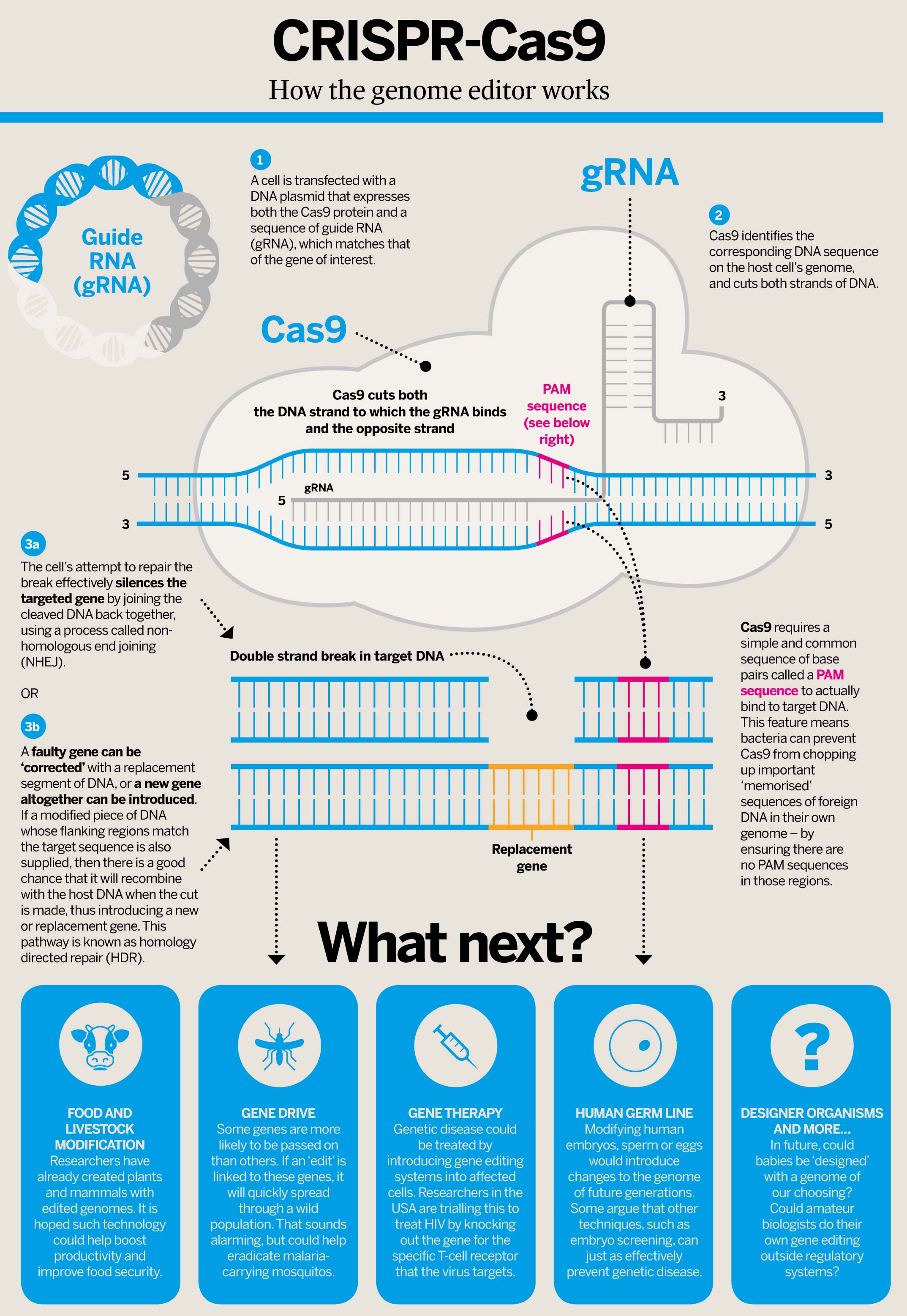- CRISPR may have the capabilities to identify gene mutations and possibly correct such mishaps. This would be quite useful to prevent malformations such as cleft lip.
- It has been propose that CRISPR could possibly accelerate healing of wounds and help to repair bone, cartilage, nerves and muscles (1). Clearly, discovering how CRISPR could do any of these processes would be a great advancement in the field of medicine, especially for conditions such as muscular dystrophy.
- It may be possible that CRISPR could be used to help patients repair damaged tissues and to help them with immune functions. Similarly, there may be a way to prevent the body from rejecting transplants and attacking itself.
These applications could be applied in the near future if all goes to plan. However, some doctors have concerns whether these procedures would be unethical. There are many complications when it comes to targeting specific cells and there is the possibility that any cell could be damaged in the process that was not meant to be targeted. If scientists could bypass this hurdle, more ethical problems arise when it comes to enhancing someone's genes. Specifically, people may abuse this kind of procedure and use it for non-medicinal purposes such as enhancing muscle growth or other perks. Another area of concern is the use of CRISPR for those with reproductive problems. Again, scientist worry about this practice because it would involve germline therapy, essentially modifying babies which in turn gets continuously passed down to each generation. It may be possible to augment one's family to the point where their genes give them some kind of advantage. Ultimately, CRISPR has a great breadth of applications, but to what point does it interfere with normal developmental growth and natural life processes.

No comments:
Post a Comment